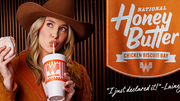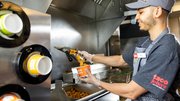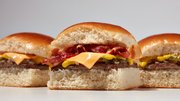Delivery
Virtual restaurant franchise launches Miami virtual food hall
With brands like Chef Burger, El Taco Loco and Mama Rosa, its safe to say that the nation's first virtual restaurant franchise has a little something for everyone. Now, the company is working with Grubhub to bring that variety to Miami diners via a virtual food hall.
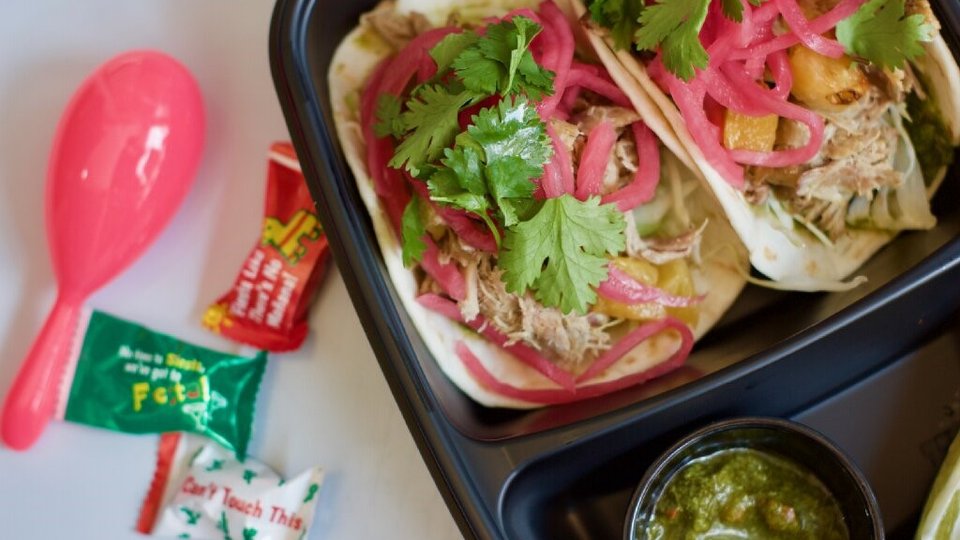
July 28, 2020 by S.A. Whitehead — Food Editor, Net World Media Group
Nearly a year ago, a veteran Turkish-born, European-raised chef — Alp Franko — began testing The Local Culinary, a ghost kitchen franchise model in Miami. Although the commissary-style production facilities offer delivery-only service, they may offer food from up to 50 brands in each space. Although there is only one location now at 100 S Miami Ave., Franko's goal is to eventually build them all over the country.
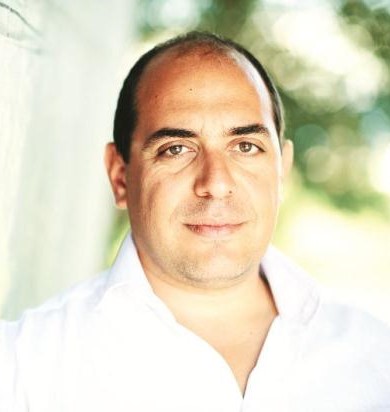 |
| Alp Franko. (Photo provided) |
Since the launch of the Miami test location, however, things have obviously changed for restaurant owners. Despite the turmoil, The Local Culinary franchise in South Florida has found success, inspiring Franko to take the business to the next level. He's now puttinghis delivery-centered approach inside a virtual food hall in Miami.
The idea behind the virtual food hall — which The Local Culinary developed with third-party delivery provider, Grubhub — is very much like that behind the virtual franchise concept itself: A single restaurant kitchen creates dishes to meet a wide variety of delivery customers' needs. Regardless of how many different tastes and wallets exist in any given group of diners, one kitchen and it's The Local Culinary brands, could ostensibly fill the demands in a single delivery order.
From 8 to 55 brands … and counting
When first launched, The Local Culinary offered eight brands but is now up to 25 with plans for 50 soon. Whether the virtual food hall concept will also be launched in cities where The Local Culinary sells franchises, remains to be seen, but in Miami, the food hall is a reality.
Although Franko created the concept before COVID-19 became a problem, Franko said the pandemic has made the model more important than ever. Yelp Economic Average, for example, reported that nearly 16,000 independent restaurants have closed permanently. But that still leaves, according to YEA, more than 10,000 temporarily shuttered brands potentially trying to make a go of it still
Franko said his concept can put these idled restaurant kitchens back to work and then help rebuild their business on not just one, but up to 50 different brands at one time for their communities.
"If you are a chef or owner and you have your own restaurant, you are unfortunately suffering due to COVID. … So, we come to you and we implement with our tablets. We train you. We help you to buy the right product at the right price. … And within four weeks you are ready to produce and to deliver the 25 brands that we are offering to you," Franko said.
A place for 'mise en place'
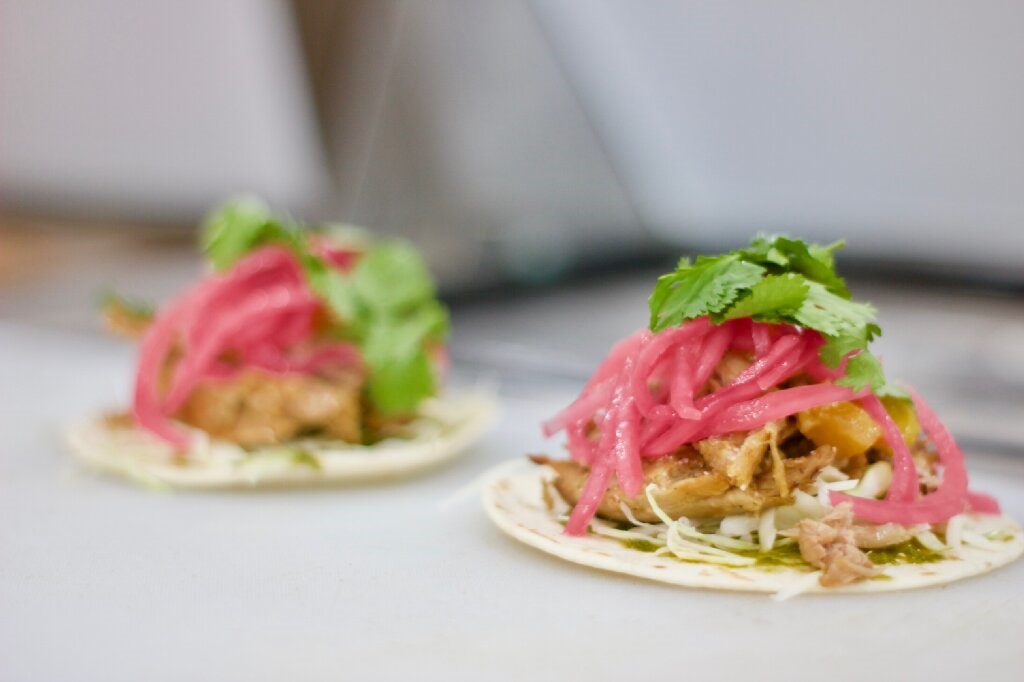 |
| A sample of the fare at El Taco Loco. (Photo provided) |
How can one kitchen handle the complexities of 50 restaurant brands? In Franko's words, the solution revolves around prep and shared ingredients, which chefs then compile and present in different ways.
"Everything in the kitchen really belongs to the prep — mise en place — as we named that in French. … " he said. "This is really a way to optimize and to have 25 or 50 brands in one kitchen.
"Let me give you a small example with the crispy chicken (used at several The Local Culinary brands). We are using the crispy chicken for the burger concept, for the salad concept and other concepts like that. So we are having a kind of optimization of the prep that we are using for all these brands."
Model withstands Miami 'heat'
Franko said despite the fact that restaurant lunches have dried up in Miami's downtown areas since many office employees are working from home, business at The Local Culinary kitchen in Miami remains the same as it was pre-pandemic. After all, regardless of where the office is, a virtual brand can often be there, too.
"We are trying to adapt, if I can say, to the fast-food (model) in terms of production, but not quality-wise," he said. "Price-wise, at Chef Burger, our average burger is $12, and when we started, I said to myself that might out-price some people in Miami, so maybe we'll need something for them. So we did a burger at $8 (at Hey … Burger). Then I thought we also need a burger at $5, so we created another brand (Mr. Cheeseburger) that is more in the $5-$6-$7 range.
"But, we always keep the quality, so quality is really, let's say, our model. … But (for the lower-cost burger brand), the portion is a little bit less … and the components we are putting under a burger will be simple, and quick. … Then with Chef Burger there's more attention and it's more a product that we are working on or are also adding some (items) in on the products. So, it's really not related to the quality of the product (where adjustments are made for the price level of the brand), but on the size of the product or really the attention and the final touches that we are giving to the product."
Virtual food hall debuts in Miami
The Miami virtual food hall kicked open its digital doors this week, giving customers access to the menus of 25 brands including everything from the fast-food fare of Mr. Cheeseburger and Dirty Fingers, to more developed dishes from Taco Loco, Rice Paper and Chef Burger. Only time will tell if this approach — that promises to solve the age-old restaurant business problem of satisfying all the tastes in a given dining party — will float with the South Florida audience, but Franko is very optimistic.
"So if you have a friend that wants pizza, but you want a salad and you have another friend that wants Chinese, you can pick all these from the food hall and you will get only one delivery guy, one delivery fee and you can pay and even split it (the total cost of the order delivered)."
Although Grubhub helped develop the virtual food hall, the third-party delivery provider was not otherwise involved with the development of the brands featured, Franko said. But the company does bring its audience of hungry potential customers to the hall, which is a big part of any restaurateur's business battle. Whether that food hall concept will be recreated in other cities, as Franko sells franchises of The Local Culinary concept nationally, remains to be seen.
"We've received a lot of inquiries from different places in the United States, from Palo Alto to Baltimore, Chicago, New York," Franko said. "So we are creating a team to work with them because ... dining-in is not existing anymore … so I can say it's mainly chef owner places (inquiring about Local Culinary franchises), but not specifically any kitchen style. … They are chef-oriented small restaurants and chef owners. That's really our partners."
About S.A. Whitehead
Pizza Marketplace and QSRweb editor Shelly Whitehead is a former newspaper and TV reporter with an affinity for telling stories about the people and innovative thinking behind great brands.
 ChatGPT
ChatGPT Grok
Grok Perplexity
Perplexity Claude
Claude